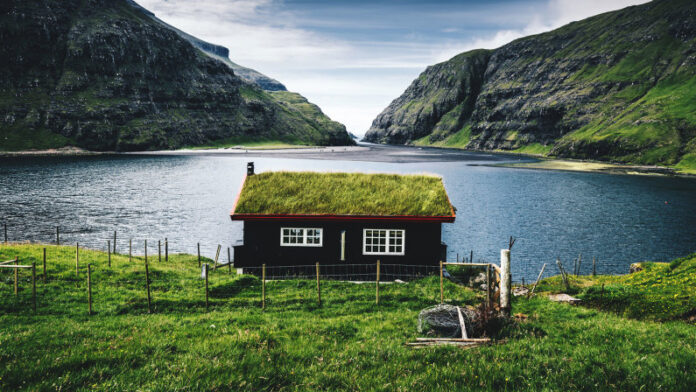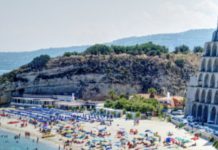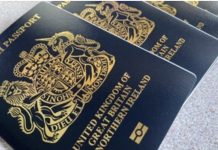The rugged and remote Faroe Islands, an archipelago of 18 islands in the North Atlantic, have been chosen as one of the destinations set to transform the travel industry next year, and have been awarded a prestigious place in the Lonely Planet Best in Travel list for 2021.
The much-awaited annual list, compiled by Lonely Planet’s team of travel experts, highlights the world’s must-see destinations. This year, the Best in Travel list reflects an unprecedented time of disruption in the travel industry, and has been refocused to showcase transformative travel, which encourages travellers to find authentic and mindful moments during their journeys.
The awards highlight important changes taking place globally, from sustainability to diversity, and shine a light on the individuals shaping the future of travel. For 2021, the Faroe Islands have been awarded a place in the Community Connection category, which celebrates destinations offering authentic and unforgettable experiences that give back to local communities.
This wild and isolated archipelago – located between Scotland, Norway and Iceland – embraces its close-knit community, making it one of the most endearing nations in the world. With a population of just under 53,000, it is a tiny nation compared with the other 10 destinations receiving awards in the Community Connection list, which include Australia, Cambodia and Ethiopia.
Commenting on the accolade, Guðrið Højgaard, Director at Visit Faroe Islands, says: “This recognition by Lonely Planet is particularly special to us here in the Faroe Islands, as the community is at the heart of our everyday lives. From Heimablídni (‘home hospitality’) supper clubs, where locals invite tourists into their homes for traditional homemade Faroese food, to HOYMA, the acoustic music festival performed in the living rooms of locals’ homes, we are a small nation with a big spirit. This year, 2020, has seen testing times for communities all over the world, and we are proud that our community spirit has remained resilient, and we look forward to warmly welcoming visitors in 2021.”
Backed by the Faroese government, the nation has found innovative ways to build and bring together its community, from taking on tech giants Google to have its ancient language featured on Google Translate, to the Sheep View 360 project which helped put the Faroe Islands on the (Google) map. Each April, the islands now officially “close for maintenance” – while 100 volunteers from all over the world (“the Maintenance Crew”) work with locals on conservation projects to help preserve the natural landscapes, from marking paths with wayfinding posts, to mending paths that have eroded and rebuilding cairns. The Closed For Maintenance initiative has been hugely positive, and has created understanding and friendships between locals and visitors, with the locals themselves surprised by how much has been achieved by working together on projects for the benefit of locals and visitors alike for just a couple of days.
The Faroes Islands’ summer festival, Ólavsøka National Day, is held in the capital, Tórshavn, and brings together nearly all of the islands’ 53,000 residents for chain dancing, ballad singing and joyous celebrations. Hospitality is an essential part of local life and visitors are always welcome to take part in such experiences.
In Velbastaður, on the island of Streymoy, you can book a spot at Anna and Óli’s home and join with others to eat a home-cooked Faroese meal with ingredients from their farm, plus locally-made beer.
The judges were impressed with the way the Faroe Islands continue to eschew fast-paced, short-lived mass tourism for something more authentic, personable and community-based. One judge commented: “From heimablídni to family-run guest houses and plenty of opportunities to interact with locals one-to-one, the close-knit community make it an endearing destination to visit. What’s more, its oversubscribed Closed For Maintenance scheme — an annual event where 100 voluntourists visit for the sole purpose of mending hiking paths, rebuilding cairns and helping to preserve the natural landscape – allows visitors to give back to the community themselves, something the judges would love to see more of elsewhere. ”
“Travel is a much more considerate exercise in 2021 than it has been ever before,” Lonely Planet CEO Luis Cabrera said. “Best in Travel 2021 champions people, places and organisations that are making travel a force for good, all the more essential in a year when COVID-19 has disrupted and deprioritised travel. Best in Travel 2021 reflects how travel contributes to sustainability, community and inclusivity and showcases how we can best explore the world responsibly.”
To learn more about the Faroe Islands, visit www.visitfaroeislands.com.







